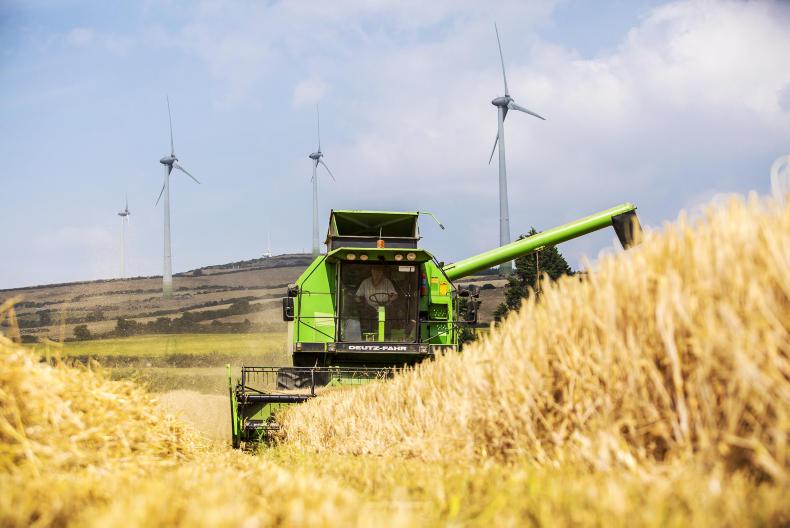There is an opening for both new and existing agricultural co-operatives to play a more prominent role in Ireland’s response to climate change. This was one of the main points discussed at the Máire Ní Síthigh Autumn School in Courtmacsherry, Co Cork, on Saturday.
University College Cork senior environmental researcher Dr Paul Deane said: “It’s very easy to point the finger and vilify farmers. But while agriculture is responsible for a third of Irish greenhouse gas emissions, there are great opportunities for the agriculture sector to contribute to solutions in reducing climate change.”
Listen to "Máire Ní Síthigh Autumn School, Courtmacsherry. Climate change and agriculture discussion" on Spreaker.
These opportunities would be primarily aimed at the small- and medium-sized farmers, he added: “We’re one of the most energy-dependent countries in the world, so there are opportunities for farmers to come together as co-ops and to look at things like anaerobic digestion, planting forestry or energy crops for the provision of energy. We need to think very seriously about this and provide political support.”
He also addressed one of the challenges faced by many new energy projects, including the effect of NIMBY (not in my back yard). “The issue is largely the fear of the unknown and sitting down and listening to each other would help,” Deane said. “Communication is a big part of it.”
Green Party leader Eamonn Ryan TD echoed the UCC researcher’s comments. Acknowledging that primary producers are at the frontline of climate change, he too said this was a chance to strengthen our co-op movement at all levels. “We need to go back to our co-operative roots,” Ryan said. “There is an opportunity to open up an income around generating alternative energy.”
Read more
Five-year payback needed for farm energy projects
Renewables facing import competition
There is an opening for both new and existing agricultural co-operatives to play a more prominent role in Ireland’s response to climate change. This was one of the main points discussed at the Máire Ní Síthigh Autumn School in Courtmacsherry, Co Cork, on Saturday.
University College Cork senior environmental researcher Dr Paul Deane said: “It’s very easy to point the finger and vilify farmers. But while agriculture is responsible for a third of Irish greenhouse gas emissions, there are great opportunities for the agriculture sector to contribute to solutions in reducing climate change.”
Listen to "Máire Ní Síthigh Autumn School, Courtmacsherry. Climate change and agriculture discussion" on Spreaker.
These opportunities would be primarily aimed at the small- and medium-sized farmers, he added: “We’re one of the most energy-dependent countries in the world, so there are opportunities for farmers to come together as co-ops and to look at things like anaerobic digestion, planting forestry or energy crops for the provision of energy. We need to think very seriously about this and provide political support.”
He also addressed one of the challenges faced by many new energy projects, including the effect of NIMBY (not in my back yard). “The issue is largely the fear of the unknown and sitting down and listening to each other would help,” Deane said. “Communication is a big part of it.”
Green Party leader Eamonn Ryan TD echoed the UCC researcher’s comments. Acknowledging that primary producers are at the frontline of climate change, he too said this was a chance to strengthen our co-op movement at all levels. “We need to go back to our co-operative roots,” Ryan said. “There is an opportunity to open up an income around generating alternative energy.”
Read more
Five-year payback needed for farm energy projects
Renewables facing import competition






 This is a subscriber-only article
This is a subscriber-only article










SHARING OPTIONS: